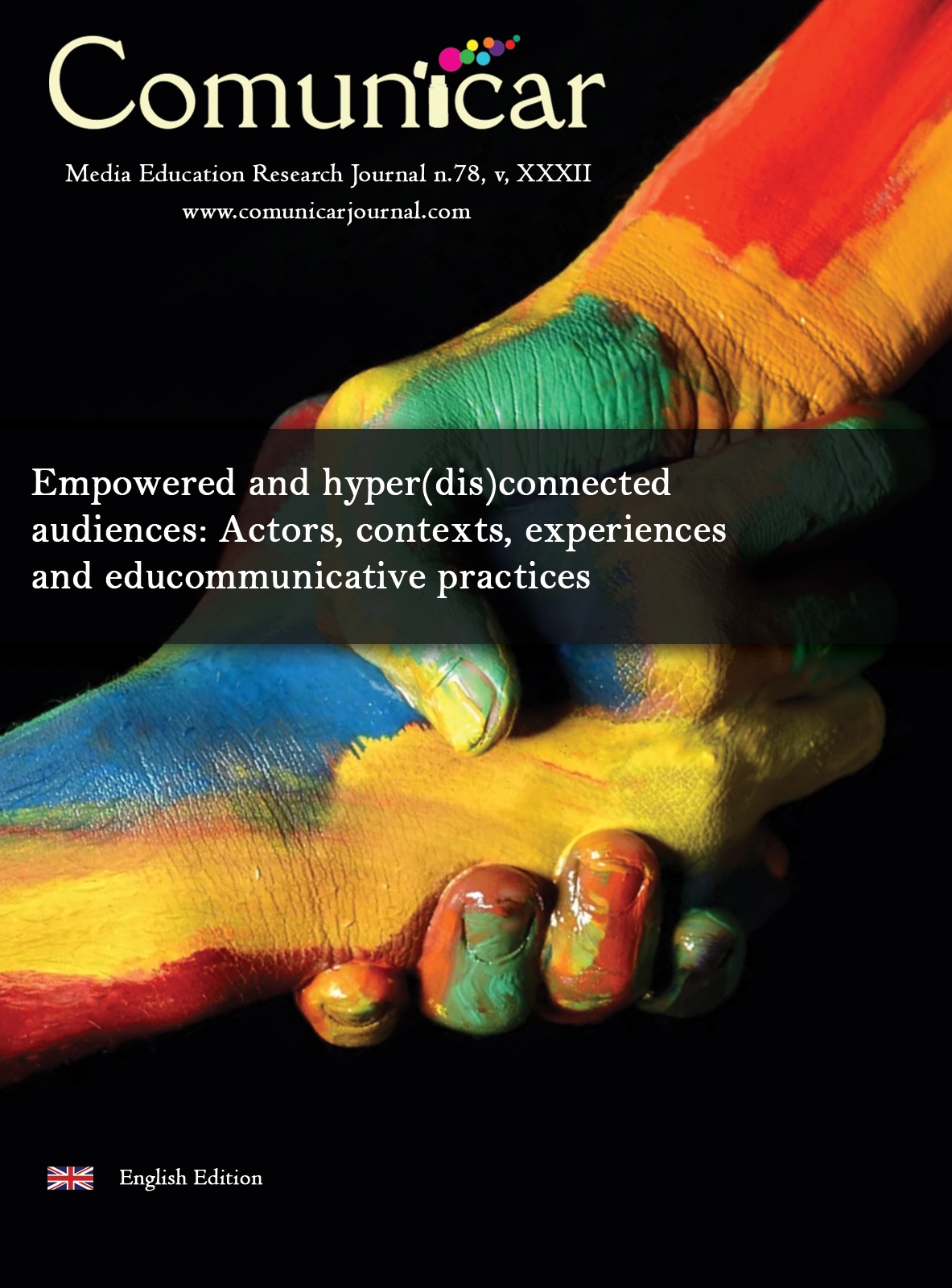西班牙对Covid-19的新闻消费和风险认知
IF 5.1
1区 文学
Q1 COMMUNICATION
引用次数: 17
摘要
西班牙被鞭打艾滋病影响最大的国家之一,Covid-19在不确定性和压力的情况下,媒体在传播信息方面发挥实际作用的此项调查,以决定因素影响向Coronavirus危险的感知,什么元素condicionaron信任执行所采取的行动,为了回答这些问题,我们对来自西班牙不同自治社区的2034人进行了在线问卷调查,测试了两种多元线性回归模型:此外不同技术bivariadas参数统计分析数据偏离更危险的感知更通报部门新闻关于Coronavirus第二个结论参考先前0.54政策所扮演的角色等个人思想、信任还激励政府采取的措施,所进行的分析表明,进行更多信息监测的部门也不能幸免于假新闻的传播。这项研究强调了传播在感知风险方面的重要性,以及在这一领域进行进一步研究的必要性,因为它对心理、社会和文化的影响。社会和经济意味着说现象abstract:西班牙的候补委员is one of the most countries that has been severely影响by the Covid-19 virus In times of确定性and压力,the media plays an important role In disseminating information This study哪些因素影响的风险关于the Coronavirus perception,哪些因素决定trust In the政府所采取的措施以及信息的呈现如何影响假新闻的传播来回答这些问题,一项由西班牙不同自治社区的2034人使用两种多元线性回归模型创建并完成的在线调查,不同bivariate as well as技术parametric统计分析数据节目增加了风险perception编制部门with greater的news about The Coronavirus A second结论refers to The role played by an’s pre-existing political biases,如个人品德,及其effects on The trust placed in The Government in addition,缔约方会议所通过的措施分析进行了执法部门,按照the news more closely are not immune to the扩散of举news This research空间the communication in risk perception十分重要和行为需要进一步research in This field in terms of the心理、社会和经济影响of This phenomenon本文章由计算机程序翻译,如有差异,请以英文原文为准。
News consumption and risk perception of Covid-19 in Spain
España ha sido uno de los países más azotados por la pandemia de la Covid-19 En un contexto de incertidumbre y estrés, los medios de comunicación desempeñan un papel relevante en la difusión de información En esta investigación se determinan qué factores influyeron en la percepción del riesgo ante el Coronavirus, qué elementos condicionaron la confianza en las medidas adoptadas por el ejecutivo, y cómo influyó la exposición informativa a la propagación de fake news Para responder a las cuestiones se realizó un cuestionario online en el que participaron 2 034 personas de diferentes comunidades autónomas de España, poniéndose a prueba dos modelos de regresión lineal múltiple, además de diferentes técnicas bivariadas de análisis estadístico paramétrico Los datos evidencian una mayor percepción del riesgo entre los sectores con mayor exposición informativa a noticias sobre el Coronavirus Una segunda conclusión referencia el papel que desempeñan las predisposiciones políticas previas del individuo, como la ideología, en la confianza que inspiran las medidas adoptadas por el Gobierno Asimismo, los análisis realizados muestran que los sectores que realizan un mayor seguimiento informativo no son inmunes a la propagación de fake news Esta investigación pone de manifiesto la importancia que desempeña la comunicación en la percepción del riesgo, y la necesidad de ahondar en este campo, por las implicaciones psicológicas, sociales y económicas que implica dicho fenómeno Alternate abstract:Spain is one of the countries that has been most severely affected by the Covid-19 pandemic In times of uncertainty and stress, the media plays an important role in disseminating information This study establishes which factors affected risk perception regarding the Coronavirus, which factors determined trust in the measures taken by the Government, and how the presentation of information influenced the spread of fake news To answer these questions an online survey was created and was completed by 2,034 people from different autonomous communities in Spain, using two multiple linear regression models, as well as different bivariate techniques for parametric statistical analysis The data shows increased risk perception among the sectors with greater exposure to news about the Coronavirus A second conclusion refers to the role played by an individual's pre-existing political biases, such as ideology, and their effects on the trust placed in the measures adopted by the Government In addition, the analysis conducted shows that sectors that follow the news more closely are not immune to the spread of fake news This research highlights the importance of communication in risk perception and the need to conduct further research in this field, in terms of the psychological, social, and economic implications of this phenomenon
求助全文
通过发布文献求助,成功后即可免费获取论文全文。
去求助
来源期刊

Comunicar
Multiple-
CiteScore
10.10
自引率
5.40%
发文量
40
审稿时长
20 weeks
期刊介绍:
Comunicar specialized in educommunication: communication and education, ICT, audiences, new languages...; monographs specialized in current issues. Double format: printed and online; digitally, accessible in full text, free of charge, for the entire scientific community and researchers around the world. Coeditions printed in Spanish and English for the whole world. Published by Oxbridge Publishing House which collaborates with many international centres and universities.
 求助内容:
求助内容: 应助结果提醒方式:
应助结果提醒方式:


